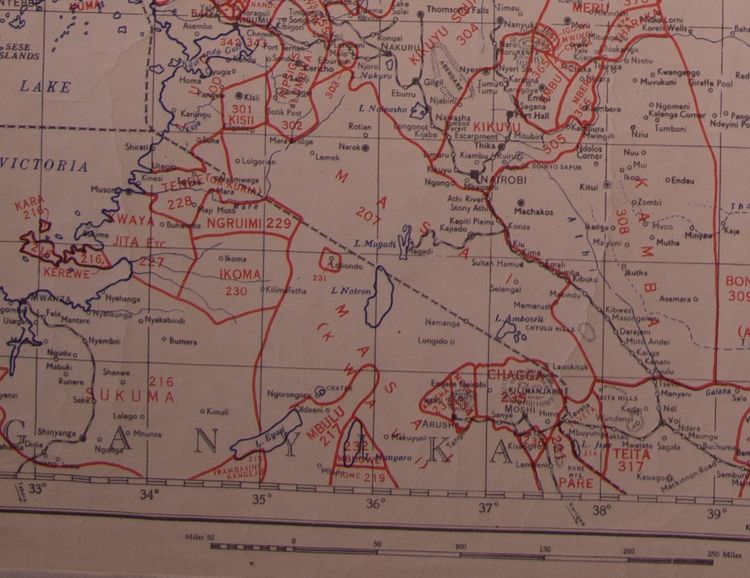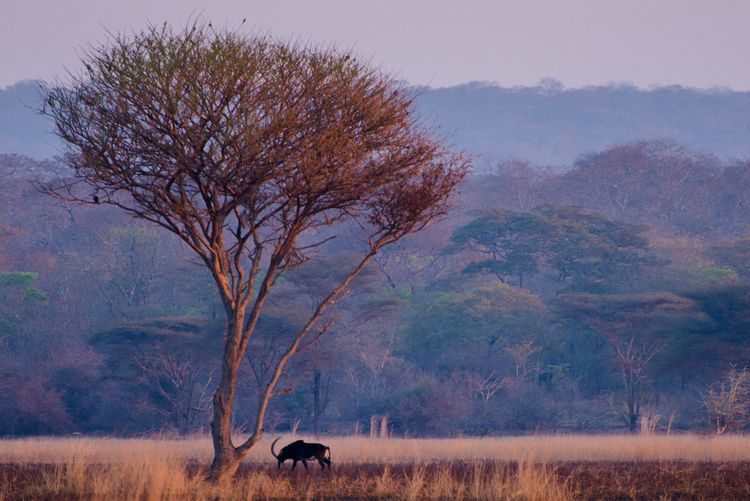Paper summary: Defining pathways towards African Ecological Futures

A few months ago, back in 2021, a small team of us published a paper in the journal sustainability (A journal of the MDPI family - but that's a story for another day!) on the process of imagining and defining African Ecological Futures.

Essentially, we wanted to synthesize some of the key learnings from the African Ecological Futures project, a collaboration between the African Development Bank and the Worldwide Fund for Nature. One of the key achievements of this process, were a series of participatory scenario planning exercises held with a number of different stakeholders. The goal in these scenario planning exercises was firstly to understand the pressures and drivers in Africa's ecological futures. This then laid the foundations for four plausible future scenarios that fit on a continuum between governance (centralised vs. decentralised) and the drivers of economic production (driven by global export vs. regional demand). The scenarios are shown in the figure below: "good neighbours," "going global," "all in together," and "helping hands."

These scenarios then provided a lens for us to reflect on the key pressures on the natural environment using a well-established framework, DPSIR (drivers, pressures, state, impacts, and responses). These are all summarised in this pretty dense figure!

We then wanted to take this process a step further, and discuss what the potential opportunities to reorient Africa’s development trajectories towards a sustainable path. These opportunities fall under the broad categories of “effective natural resource governance”, “strategic planning capabilities”, “investment safeguards and frameworks”, and “new partnership models”. Underpinning all these opportunities are “data, management information, and decision support frameworks”. Interestingly, even before we started writing this paper, Peter Tyrrell and I had already identified this last opportunity as a gap that we felt we, together with lots of other incredibly talented people in Africa, could make a small contribution towards (that's one of the key goals of our work).

To give a couple of illustration about what all of this might mean in practice, we also shared two case studies, that of Green Infrastructure and Green Cities, and Sustainable Agriculture.
Overall, we felt that the scenarios process could be a valuable tool for analysing trade-offs and guiding discussions of what is an extremely complex system. However, we also acknowledged the limitations of what was an expert-based review and scenario development process. So, although efforts were made to consider local stakeholders and the role of local governance in this work, the work is nevertheless "top-down." In future, ecological futures and scenario planning must include the knowledge and wisdom of other voices, including but not limited to: rural and urban land owners, communities, and citizens. Furthermore, the scenarios derived from the African Ecological Futures process should not be seen as an end-result, but rather to instigate further discussion and hopefully, action!
The overall imperative of development across the continent, coupled with increased access to information, new decision support and planning tools, emerging new technologies, and an increasing interest in nature and sustainability provide a unique opportunity to redefine the continent’s future.
This was just a quick summary of the paper, but as you can imagine, there's plenty more depth, discussion and justification in the full text, so if that piqued your interest, check out the full text, it's free!
Thank you to all my co-authors: Peter Scheren, Peter Tyrrell, James Allan, Jessica Thorn, Tendai Chinho, Yemi Katerere, Vanessa Ushie and Jeffrey S. Worden.
If you enjoyed this post, please consider sharing it with others who might be interested too. If you want to connect, I'm always happy to chat, so get in touch!
For those who might be interested, here are some recent publications:
- Coexistence in an African pastoral landscape: Evidence that livestock and wildlife temporally partition water resources. African Journal of Ecology Connolly, E. et al. 2021
- Defining Pathways towards African Ecological Futures. Sustainability Scheren, P. et al. 2021
- Conserving Africa's wildlife and wildlands through the COVID-19 crisis and beyond. Nature Ecology & Evolution Lindsey, P. et al. 2020
- Incorporating social-ecological complexities into conservation policy. Biological Conservation Brehony, P. et al. 2020
- Conservation from the inside-out: winning space and a place for wildlife in working landscapes. People and Nature Western, D. et al. 2020





